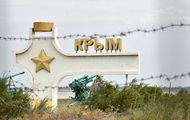Three NGOs announced Monday that they had filed a complaint in Russia against mercenaries of the opaque organization “Wagner” for the extremely cruel murder of a Syrian in 2017, hoping to draw attention to this group with troubled links with the Kremlin.
This complaint for a possible “war crime”, which is unlikely to lead to a trial in Russia, comes on the tenth anniversary of the Syrian conflict, in which Russia intervened in 2015 to the aid of President Bashar al-Assad.
It also comes as multiple legal actions have been launched in Europe against senior Syrian officials accused of torture.
In a statement, the three NGOs – the Syrian Center for Media and Freedom of Expression (SCM), the International Federation for Human Rights (FIDH) and the Russian organization Memorial – claim to have identified and “produced evidence” attesting that Wagner’s men tortured and beheaded a suspected deserter from the Syrian army, in 2017.
“This is the very first time that such an action has been brought by the relatives of a Syrian victim against Russian suspects”, noted the NGOs, which want to draw attention to the atrocities committed by Wagner.
“This complaint is important because we are not dealing with a single crime but with a whole chain of impunity,” Memorial official Alexander Tcherkassov told AFP.
Sent to the Investigative Committee, the Russian body responsible for the main criminal investigations, it must now examine it and decide whether or not to initiate criminal proceedings.
The video of the murder was revealed in 2018 by the independent newspaper Novaïa Gazeta. Russian-speaking men are seen hitting their victim with a hammer and then dismembering him, eventually spraying him with gasoline and setting his body on fire while his head was suspended from a pole.
It is in the name of the family of this man, Mohamad A., that the complaint was filed.
– “Impunity” –
First appearing in Ukraine, Wagner has no legal existence in Russia, where private military companies are prohibited. But the presence of the group has been documented in Syria, Libya alongside the forces of Marshal Khalifa Haftar or as “instructors” in the Central African Republic and elsewhere.
If the constitution of the file required six months of work, it has little chance of success in view of the reluctance of the Russian justice to investigate the crimes of its soldiers.
“Unfortunately, we have a huge negative experience with regard to this kind of business in Russia”, explains Mr. Cherkassov, whose Memorial organization, in the sights of the authorities, has notably denounced the crimes committed by Russian forces in Chechnya. .
Ilia Novikov, one of the lawyers of the plaintiffs, assures however that Russian law obliges Moscow to investigate the crimes committed by its citizens abroad. But “the Investigation Committee has not opened any proceedings on the crime in question” while it had had information for a year, he said, quoted in the statement.
A first complaint was indeed filed in 2020 by Novaïa Gazeta, which had identified a man in the video and reported other abuses. She had remained a dead letter.
“The Russian government must assume its legal and moral responsibilities vis-à-vis violations committed by its army, including by private entities participating in external military operations under its command,” adds Mazen Darwish, director and founder of the SCM.
The complaint against Wagner follows those filed in recent years by a hundred Syrian refugees against high officials of the regime of Bashar al-Assad in Germany, Austria, Norway or Sweden.
So far, Wagner’s men have escaped prosecution but the alleged sponsor of the organization, Evguéni Prigojine, is in the crosshairs of the American and European authorities who have sanctioned him. He’s wanted by the FBI.
Close to Russian President Vladimir Poutine, Mr. Prigojine has always denied any role in Wagner. But for the three NGOs, there is no doubt: Wagner is made up of “Russian fighters acting under the effective control of Russia” and involved “in serious human rights violations against civilians”, in Syria and elsewhere. .
–

